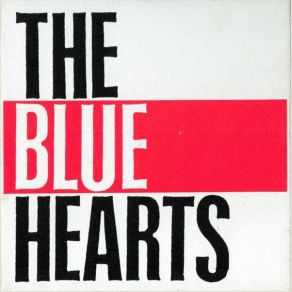Meet the Blue Hearts Best Collection In USA
Download links and information about Meet the Blue Hearts Best Collection In USA by The Blue Hearts. This album was released in 1990 and it belongs to Rock, Punk, World Music, Alternative, J-Pop genres. It contains 19 tracks with total duration of 56:43 minutes.

|
|
|---|---|
| Artist: | The Blue Hearts |
| Release date: | 1990 |
| Genre: | Rock, Punk, World Music, Alternative, J-Pop |
| Tracks: | 19 |
| Duration: | 56:43 |
| Buy it NOW at: | |
| Buy on iTunes $24.51 | |
Tracks
[Edit]| No. | Title | Length |
|---|---|---|
| 1. | I Wanna a Kiss | 3:15 |
| 2. | Scrap | 2:38 |
| 3. | No No No | 2:26 |
| 4. | Dance Number | 1:26 |
| 5. | Linda Linda | 3:22 |
| 6. | Be Nice | 3:12 |
| 7. | Boku No Migite (USA Live Version) | 3:12 |
| 8. | Hammer (USA Live Version) | 2:11 |
| 9. | The Future Is In Our Hands | 2:26 |
| 10. | When the Bombs Fall | 2:06 |
| 11. | An Endless Song | 3:04 |
| 12. | A Boy's Song | 2:40 |
| 13. | Chernobyl | 3:07 |
| 14. | Blue Sky | 4:47 |
| 15. | Train-Train | 3:47 |
| 16. | The Thunderbolt | 2:46 |
| 17. | Kick the Blues | 4:44 |
| 18. | Love Letter | 3:27 |
| 19. | The Blue Hearts Theme | 2:07 |
Details
[Edit]The eponymous debut of the Blue Hearts shows their remarkable ability to make three droning major-key chords carry both a blast of energy and the "aw shucks" vibe of early rock & roll. This sound was later reflected in music of a zillion J-punk bands from Sambomaster to Beat Crusaders, but, while the record presents Blue Hearts at their freshest and most energetic, it also shows there could be a reason why their breakthrough didn't come until two albums later. This is not to say Blue Hearts is a bad release. In fact, it's one head-bobbing, toe-tapping release that maybe doesn't care much for true punk aesthetic, but scores because of its open-mindedness: the simple riffs are distinguishable from each other, there's a hefty dose of classic rock, and a couple of songs even feature a slower tempo and an acoustic guitar (who said punks don't do ballads?). The emotional vibe is perfectly balanced between cynical irony and a party-time lightheartedness, the best songs, like the opener "Mirai wa Bokura no Te no Naka," are as fun as an Elvis/Sex Pistols crossover can possibly be, and the closer "Linda Linda," Blue Hearts' most famous song, is monstrously addictive. But the end impression is still pretty plain: inspiration and energy can only replace strong songwriting to a degree, and that line is often crossed on the record — no other song on Blue Hearts can even begin to match "Linda Linda" in its ability to stick to the memory after a single listen. And catchiness ought to be the main selling point here, considering that this kind of music wasn't novel even in 1987, let alone decades later.